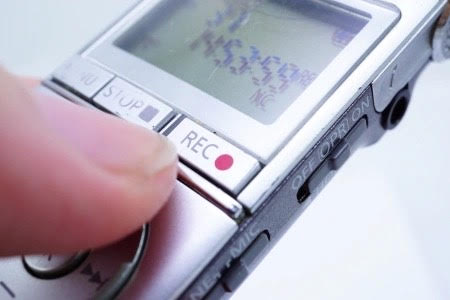 By: Kira Davis
By: Kira Davis
Have you ever had a conversation with someone that you wish you could have recorded? Maybe it was a funny joke a friend told you that you wanted to play back when you missed them. Maybe it was a crude comment your boss made about how you could get that promotion you have been working so hard to achieve. Or maybe it was your soon-to-be ex-spouses’ admission to you that they had been intimate with someone else which would nullify your prenuptial agreement. No matter what the circumstance, it is important to know what the law is regarding recording another person.
First you must determine whether you live in a “one-party” or “two-party” (sometimes known as “all-party”) consent state.[1] California, Connecticut, Delaware, Florida, Illinois, Maryland, Massachusetts, Michigan, Montana, Nevada, New Hampshire, Oregon, Pennsylvania, Vermont, and Washington make up the U.S. States that either clearly or potentially require consent from all parties.[2] The remainder of the U.S. States, including Virginia, only require one party to consent to the recording of a conversation.[3]
So, what does “one-party” consent really mean? It means that if you are a contributor to a conversation, (i.e., someone is talking to you and you are responding to them), you are allowed to record the conversation even without their consent.[4] You may also record a conversation that you are NOT a part of, so long as you have prior consent from one of the parties to that conversation.[5] It is important to note that if you are serving as a third party and attempting to record a conversation you are not contributing to, the consent of one of the participants is crucial as “it is unlawful to intercept and record a conversation to which you are not a party.”[6] (emphasis added).
The Federal Communications Commission (FCC) has provided guidelines for obtaining a party’s consent if you are serving as a third-party recorder.[7] The guidelines state that you may obtain consent by (1) getting verbal or written consent prior to the recording being made, (2) playing a verbal notification before the conversation begins (e.g., “This phone call is being recorded for quality control purpose…), or (3) playing an audible beep tone repeatedly at steady intervals throughout the duration on the conversation.[8]
Now you may be wondering, is there ever a time in which I can record without having to ask for consent at all? The answer is yes. Virginia law specifically, creates an exception to the need for consent “where the person or people communicating are doing so in an environment where they should not be under the expectation of privacy.[9] An example of this would be a group of friends walking down a street talking with one another or a couple sitting in a restaurant, “there is no expectation of privacy since any person nearby could be listening to the conversation.”[10]
So what does all this mean in the practical sense? How can you apply this to your life? Knowing what the law says opens windows of opportunity to record conversations that either you or a consenting party would like to have recorded. These recordings may be necessary for legal proceedings or just to have on hand, but having an understand of the law in your state puts you in a strong place to be ready and able to capture the best or worst experiences of your life. It is important to note that, in Virginia, even following the recording laws to a tee, does not always mean that these recordings will be admissible in court so be sure to become knowledgeable on the guidelines for evidentiary admissibility of these recordings if needed![11]
[1] See Recording Phone Calls and Conversations, Justia (October 2021), https://www.justia.com/50-state-surveys/recording-phone-calls-and-conversations/.
[2] Id.
[3] Id.
[4] See Virginia Recording Laws, Recording Law, https://recordinglaw.com/united-states-recording-laws/one-party-consent-states/virginia-recording-laws/.
[5] Id.
[6] Michaela Cronin, The Price You’ll Pay to Press Play: When and Why You Should Think Twice Before Recording Your Spouse, Am. Bar Ass’n (August 1, 2021), https://www.americanbar.org/groups/family_law/publications/family-advocate/2021/summer/price-you-ll-pay-press-play-when-why-you-should-think-twice-recording-your-spouse/.
[7] Virginia Recording Laws, Recording Law, https://recordinglaw.com/united-states-recording-laws/one-party-consent-states/virginia-recording-laws/.
[8] Id.
[9] Id. (citing Va. Code Ann. § 19.2-61).
[10] Rob Gazzola, Viginia Surveillance Video and Audio Recording Legal Regulations, Surveillance Secure (February 2, 2022), https://surveillancesecure.com/virginia-surveillance-video-and-audio-recording-legal-regulations/.
[11] See Is it Legal to Use Recordings Without Consent in a High Conflict Virginia Divorce?, Keithley Law, PLLC (January 26, 2018), https://www.keithleylaw.com/blog/2018/january/is-it-legal-to-use-recordings-without-consent-in/.
